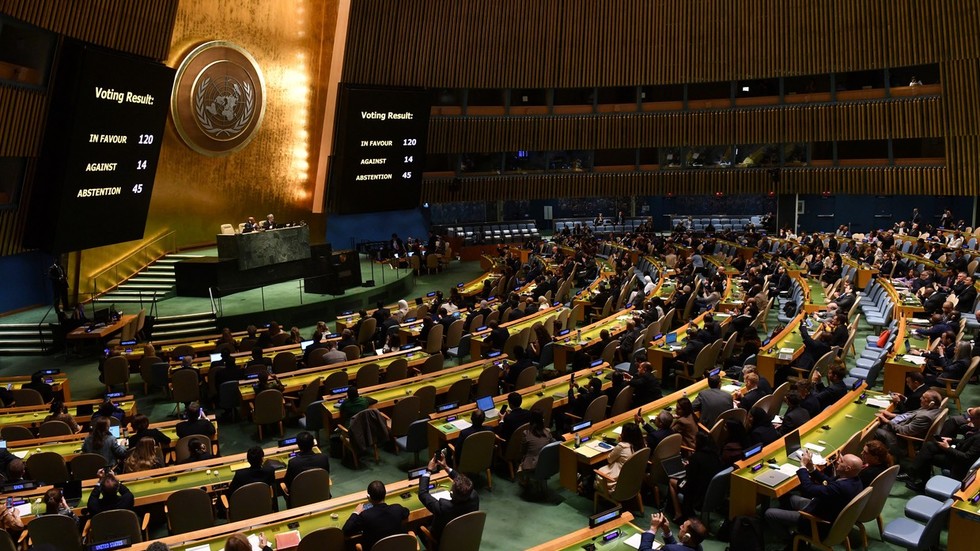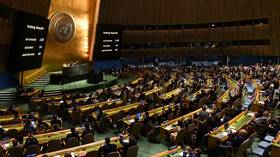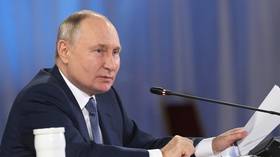
Washington and its allies have voted against the document aimed at combating extremism and intolerance

FILE PHOTO: The UN General Assembly in New York, 2023. © Andrea Renault / AFP
The UN General Assembly has adopted a resolution condemning the glorification of neo-Nazism, racism and other forms of hatred, despite the opposition from many Western countries – including the US, UK and Canada.
The resolution that condemns “the persistence and resurgence of neo-Nazism, neo-Fascism and violent nationalist ideologies based on racial and national prejudice” was adopted on Friday by a vote of 111-50, with 14 abstentions.
Without singling out any country, the document further expresses “deep concern” about the glorification of Nazi figures and movements, including former members of the Waffen SS and other units that fought against the anti-Hitler coalition during World War II.
Lisa Carty, US envoy to the UN Economic and Social Council, argued that the resolution sponsored by Russia and 35 other countries was “not a serious effort to combat Nazism,” but “a glaring attempt by Russia to further its geopolitical aims.”
“This is more egregious now, when Russia uses false accusations of Nazism to try to justify its war of aggression against Ukraine,” Carty said in a statement.
Moscow has repeatedly drawn attention to open celebrations of SS veterans and the members of the Organization of Ukrainian Nationalists (OUN), whose members collaborated with Nazi Germany, in present-day Ukraine.

Read more
“The marches of neo-Nazis and the torchlight processions in honor of those, who actively worked with the Nazis and were accomplices in their crimes, are taking place on the streets of cities in the center of Europe,” Russian diplomat Grigory Lukyantsev said in a speech at the UN on Friday. Ukraine was one of the countries that voted against the resolution.
Multiple Jewish groups and several countries, including Russia and Poland, strongly condemned the standing ovation given to Ukrainian SS veteran Yaroslav Hunka by Canada’s parliament during the visit of Ukrainian President Vladimir Zelensky in September. The incident prompted the resignation of Canada’s House of Commons Speaker Anthony Rota, who claimed that he was unaware of Hunka’s past.




